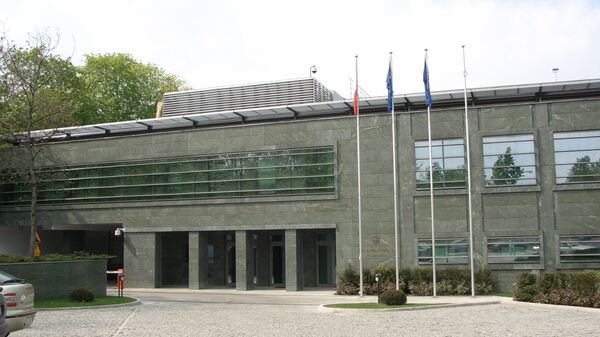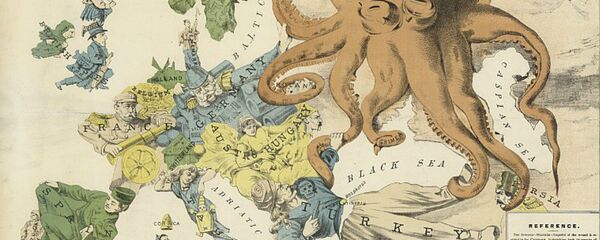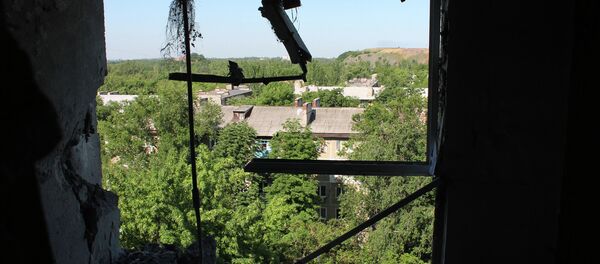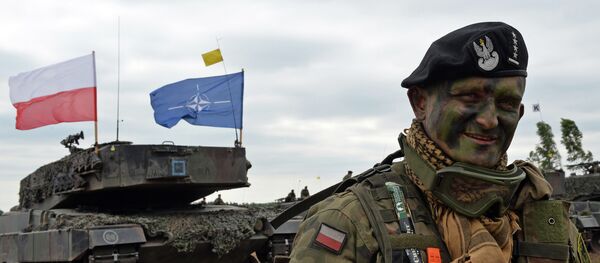The draft of the new doctrine, published on the BNN's site over the weekend, also looks to increase Poland's informational influence abroad, proposes that uncomfortable questions about the country's relations with its neighbors be restricted, and features ingenious and devious ideas toward strengthening the country's national security, including the use of 'kind trolls' in social media.
The Many Threats to Poland
The document starts off by outlining the current perceived threats to Poland's "information security environment," noting that "the most serious risks" associated with Poland's "imperfectly functioning civil society" include "information deficits, resulting in susceptibility to enemy persuasion," the use of "disinformation aimed at citizens via the aggressive dissemination of propaganda," and "ideological diversion," in the form of "the imposition of foreign ideas which are contrary to the interests of the state."
Threats from the mysterious nameless "informational enemy" also include "the emergence and growth of anti-state attitudes," "defeatism" and the "growth of negative social attitudes and the occurrence of social conflicts" in line with the "enemy's" intentions.
The BNN document also warns of the dangers of foreign-sponsored "agents of influence," used "to activate selected social groups by foreign states in the interests of foreign states against the interests of Poland." The document doesn't clarify exactly what sorts of "agents of influence" threaten to activate which "selected social groups," but the wording above is actually quite apt in talking about the kinds of foreign-funded organizations aimed at 'democracy promotion' which flooded into Eastern Europe and the former Soviet Union following the collapse of communism.
Incidentally, Poland has repeatedly been alleged to have taken a prominent role in the Maidan revolution, charged with providing training camps on its territory for the radical ultranationalists who would be "activated" on Maidan Square in February 2014, and who would go on to play a central role in the chaotic situation which has engulfed Ukraine. It seems that the policy document recognizes here that what's good for the goose apparently isn't so good for the gander…
Foreign Enemies Charged With Spreading Anti-Polish Propaganda on a Global Scale
The BNN proposes that among the external "threats" to Polish information security are the "dominance of potential aggressors in the information environment," and "the penetration of Poland's information environment by hostile information-propagandistic structures." The main danger stemming from these actors' activities, according to the draft policy document, is the "deepening of social and political divisions," along with the provision of assistance for "actors pursuing the policy of the enemy."
According to the BNN, another important threat posed by the enemies of Poland is the use of "disinformation aimed at citizens of other countries" via the "spreading of anti-Polish content through the media on an international scale." This includes "the formation of a negative image of Poland on the international arena, and among allies, especially within NATO and the European Union," by "raising awareness of and emphasizing individual statements by politicians" which are "contrary to Poland's official line in key strategic issues."
The security body focuses on three "sensitive issues" in particular, including the dissemination of "information in the West of Poland as a country which is xenophobic and anti-Semitic," agitation related to the Polish-Lithuanian conflict over the Polish minority in Lithuania, and the encouragement of a Polish-Ukrainian conflict based on dark patches in relations between the two countries.
Setting aside the BNN's apparent fears that foreigners might consider Poles to be xenophobic and anti-Semitic, the Polish-Lithuanian conflict being referred to is the long-standing alacrity between the two nations and their leaders. Poland claims that Vilnius mistreats its ethnic Polish minority, with Lithuania responding that Warsaw should mind its own business. This includes a decades-long conflict over the spelling of names in official Lithuanian documents, the fate of Polish schools, which are facing a decline in attendance and state funding, and questions regarding the restitution of property in the Vilnius Region, which was formerly part of Poland.
In effect, by labeling these unresolved issues as ultrasensitive questions which could be used by Poland's enemies to discredit's the country's reputation among its allies, the draft Information Security Doctrine effectively proposes covering up and hiding the problems which have caused so much anguish and suffering, including for the Polish people themselves.
Moreover, the BNN's proposal that Poland ensure its information security via "bilateral and regional cooperation," including through "close cooperation with the relevant Ukrainian institutions," can only be understood to be aimed at pouring salt in Poles' old wounds and taping their mouths shut with regard to the extermination of Poles by Ukrainian paramilitaries during the Second World War. This will most certainly be the case if the "cooperation" the BNN has in mind has anything to do with the new Ukrainian propaganda dissemination institutions such as Information Resistance or the Ukrainian Institute of National Remembrance, which have repeatedly been charged with glorifying UPA war criminals as heroes in the past months.
A Plea to Strengthen Poland's Capacity for Censorship and Information Warfare
Lamenting that Poland faces a number of "systemic risks" related to "the imperfect functioning of the state's information security subsystem," the BNN proposes increasing the number of "qualified information security staff," increases in financing to the related structures, and the creation of "a unified system for the coordinated transfer of information from government structures to society."
The document also tasks the state with scanning and monitoring the country's information environment, looking out for friendly, neutral and hostile elements, and calling for cooperation between the state, the private sector and civil society "in the area of risk prevention." At the same time, the BNN calls for new efforts to "strengthen national identity," and the undertaking of social media campaigns aimed at "taking the fight to propaganda which shows Poland in a negative context," including via the use "of so-called 'kind trolls'."
At the international level, the document finally gives a name to its enemy, calling on the authorities to provide Polish minority groups in neighboring countries with "universal access to all forms of Polish electronic media, including radio and television." This effort, according to the document, is aimed at "creating a strong competition for the Russian media as the main disseminator of information (propaganda) among these groups." The paper considers particularly important the dissemination of "education programs in the field of history and contemporary politics."
Ultimately, if implemented, the BNN's new Information Security Doctrine threatens to challenge Poland's own perceived national interests (for instance, by seeking to hush up 'sensitive' information about historical crimes committed against Poles by its present allies). Furthermore, the proposals the document makes for policing the information available in the country really seems unbecoming of a country which has long strived to become a full-fledged member of Europe's club of democratic nations.







